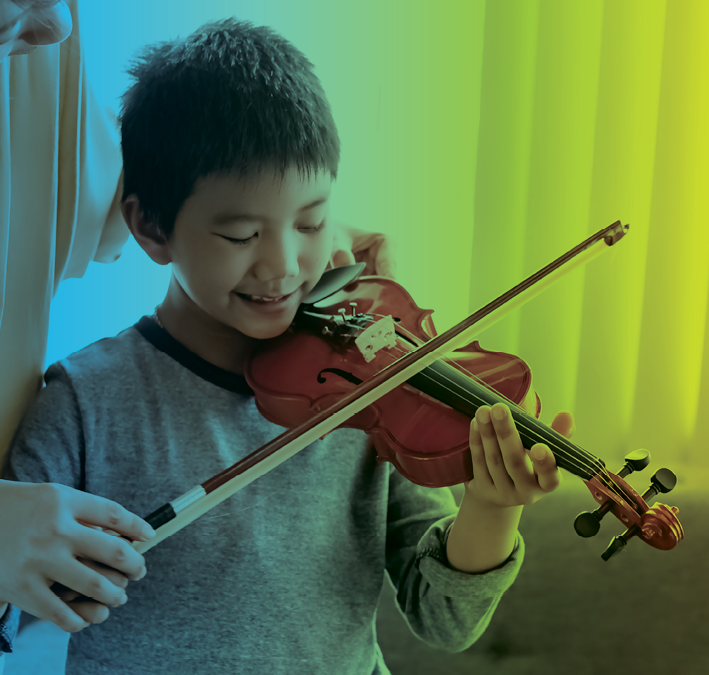
by IABA Team | Nov 29, 2022
If your child is in need of ABA services for autism, you should have no shortage of service providers to look at. Not all ABA service providers are created equal. Asking specific questions in your interview with any potential ABA provider is the best way to determine if they can help with your child’s needs.
Here’s a list of questions you should ask in any interview with a potential ABA service provider.
Interview Questions ask ABA Service Providers
How Many Hours of Therapy Does My Child Need?
This question will have a different answer for every child, as each child has unique needs. A BCBA should be recommending hours for your child–not the company or corporate policy. If you are considering a care provider who has ‘set times’ for programs, your child may not receive the correct amount of time for their needs.
Does Your Program have Behavior Requirements?
Some behaviors and issues will need to change over time, but forcing the issue through strict programs or adherence to certain behaviors is not the way to go. Be sure to routinely check your child’s program and progress if you think any requirements of the program are too strict.
ABA therapy works to help people with ASD adapt to neurotypical social norms. Having strict requirements to not allow normal ASD behaviors may lead to unnecessary behavioral challenges with many people.
Can I Observe the Program or My Child in the Program?
One of the most important aspects of ABA therapy is continuing a program at home. Information should always be available on how your child is progressing. If an ABA service provider refuses to share information or allow observation you may want to take a closer look at the program.
Daily records should be available to parents if they want to know what is going on in treatment. If an ABA service provider is unable to share information, it may be time to take a closer look. Quick note: information and records may take a few days to be logged, each clinic is different.
Do You Develop Plans Separately for Each Child?
In order to get the most out of ABA therapy, each child needs a custom-built program. ABA programs built on general needs will not help each child enough to address specific behaviors and needs
If you are presented with a brochure of programs or therapy ‘packages’ mentioned in a consultation, you need to really look at what is being offered. More often than not your child’s needs will not be met with a universal ABA therapy plan. Package deals for ABA therapy are not actually ABA therapy. Proper ABA therapy programs need to be individually created for each person.
ABA Therapy from IABA Consultants
If you have questions regarding autism treatment, education, or plans to use ABA therapy, we are here for you! Our goal is to make sure no family is turned away due to financial constraints. Our therapy team would love to talk to you. Find the location closest to you and give us a call. We’re here for you.

by IABA Team | Nov 22, 2022
After-school programs can be a great option for both kids and their parents. Children who show an interest in a given subject or activity will always want to engage in more of it. Parents who need a bit more childcare or want to try to introduce new things to their children will also be interested in finding after-school programs.
Finding a great after-school program for children with autism, however, can be a bit more challenging. Many standard after-school programs are not set up to handle certain needs of children with autism. So, how can you find a great after-school program for children with autism?
Know Your Child’s Needs
When you start looking for an after-school program for a child with autism, you need to know that child’s needs. How are they with new things and changes in routine? Do they have extreme sensory sensitivities?
Answering questions like these can help you determine which programs will work and which won’t before diving into more research. Some children with autism will thrive in after-school programs designed for neurotypical children–it all depends on the needs of that individual child.
Talk to Your Child’s School or Autism Service Provider
Before looking at programs online, talk to your child’s school or ASP. Many autism service providers offer after-school programs and activities. If you’re looking for programs specifically built for children with autism, this is the best place to start.
Having a conversation with your child’s teacher or therapist can also allow you to ask about specific programs. Outside of being able to recommend after-school programs in general, your child’s teacher therapist can recommend programs that your child would do better in. Getting a personal recommendation is always better than reading reviews or information online.
Look Up State-Sponsored Programs
State-sponsored programs, along with county- & city-sponsored programs, can be a great way to start the search for after-school programs and activities specifically designed for children with autism. Statewide (or even nationwide) programs will give you the information you can use to search for programs more relevant to your child: local programs.
When you start the search for local programs, make sure to talk to your child’s school or the school district. Many schools or district websites have lists of programs and activities designed for children with different needs. If you can’t find something on a website, be sure to make a phone call. Talking to a representative is the best way to find out if they offer a program suited to the needs of your child.
ABA Therapy from IABA Consultants
If you have questions regarding autism treatment, education, or plans to use ABA therapy, we are here for you! Our goal is to make sure no family is turned away due to financial constraints. Our therapy team would love to talk to you. Find the location closest to you and give us a call. We’re here for you.

by IABA Team | Nov 8, 2022
Choosing a daycare program is tough enough for neurotypical children. Adding autism to the equation can make the process seem like scaling a mountain.
So, what can you do to make the process easier? Where should you start looking? Let’s take a look at some great ways to help select a daycare program for children with autism.
Where do you Need Care?
Many ASD service providers offer in-home and clinical services–knowing which service you need can help narrow down your search before it even begins.
In-clinic autism services, including daycare, are great options for children who can adapt to changes in routine with some help. Children less affected by sensory stimuli are more likely to benefit from in-clinic daycare services.
At-home autism services are best utilized by those with special needs. Some clinics may not be set up to handle the specific needs of a child. Children that have many special needs (foods, toys, scenery, etc) and/or extreme difficulties with changes to routines may be more suited for in-home daycare.
Typical daycare programs may be an option for children with autism. There are things to look for specifically before enrolling a child with autism in a traditional daycare program:
- Staff experience with autism
- Individualized activities for children
- Taking special requests (if you provide toys, activities, snacks, etc)
- Communication
Talk to the Staff
Talking to the staff and caregivers about your child’s needs and what their daycare programs offer is a great way to find out if a program will be a good fit. While websites often list services, features, and more, it is not a substitute for actually talking to someone.
A great thing to remember is to be sure to make a list of questions ready for anyone you talk to. A great list will include any special needs your child has or worries you have. Getting the answers you need is one of the keys to finding a great daycare program for your child.
After you find a care provider that can take care of your child’s needs, be sure to ask questions about the staff. Things like:
- Staff experience (especially with any special needs your child has)
- Staff licensure
- Communication policies (reports and calls with parents/families)
- Goal setting (both in-clinic and at home)
Make sure to get satisfactory answers to these questions from any care provider you talk to–the care of your child will be handled by them!
Daycare Reports
Knowing how your child is doing is very important when it comes to children with autism & school/care programs. Most autism service providers will have daily or weekly reports on your child’s behavior and progress. Making sure the information you need is on daycare reports is an important part of a great daycare program’s job.
Continuing care from clinic to home (or from in-home clinician to parent) is a huge part of helping children with autism develop. Great reporting from a daycare provider leads to great communication between the parents, the daycare provider, and the child.
ABA Therapy from IABA Consultants
If you have questions regarding autism treatment, education, or plans to use ABA therapy, we are here for you! Our goal is to make sure no family is turned away due to financial constraints. Our therapy team would love to talk to you. Find the location closest to you and give us a call. We’re here for you.

by IABA Team | Oct 31, 2022
Autism has traditionally been diagnosed more frequently in males, but new studies have shown that autism may have nothing to do with sex. The lower prevalence of autism in girls may be due to specific behaviors that indicate autism going unnoticed.
The signs and symptoms of autism do not differ between boys & girls. The way some signs and symptoms of autism can be shown through behaviors, however, can differ.
General Signs of Autism
Before looking at how behaviors that potentially indicate autism may differ between boys and girls, let’s look at some of the general signs of ASD. Signs of general autism normally include:
- Social behavior issues
- Communication issues
- Problems understanding relationships
- A very narrow set of interests and areas of focus
- Stimming (repetitive motor actions and/or sounds)
- Difficulty adapting to change
- Extreme reactions to sensory stimuli
Signs of Autism in Boys
The reason autism diagnoses have been observed at higher levels in boys is that the behaviors most people associate with autism frequently appear in young boys. These signs include:
- Repetitive Actions & Play. Boys with autism are more likely than girls to engage in extremely limited and repetitive actions & play.
- Narrow Fields of Interest. Fields of interest including mechanical or data-driven topics often appeal much more to boys with autism than girls.
- Aggression. Aggression related to autism manifests much more often in boys than in girls.
- Social Unawareness. Boys with autism seem more socially ‘awkward’ than girls with ASD. Younger boys with autism often seem socially withdrawn and uninterested, unlike a larger number of young girls with autism.
Please note that signs of autism can differ greatly from person to person. Some of the signs listed in both of these lists can surface in both boys and girls. These lists are simply to show signs that occur more often when diagnosing autism in young girls & boys.
Signs of Autism in Girls
Some of the criteria used to diagnose autism may go unnoticed by parents or teachers when it comes to girls. These signs can manifest in different ways. Some of the signs of autism that girls exhibit more than boys include:
- Introversion. Girls with autism may be more introverted or be considered to be ‘shy’ than boys. While being introverted doesn’t necessarily mean a girl has autism, being severely introverted may be a warning sign.
- Hyper focusing. Hyper focusing is, broadly speaking, complete absorption into a task. In girls with autism, hyperfocus totally prevents them from dividing attention between more than one thing.
- Lack of social awareness. Another sign that a young girl may have autism is a lack of social awareness. This manifests itself in a girl being unable to establish the relevance or importance of others, leading to a lack of understanding social cues.
- Auditory/Sensory Processing. Severe auditory and other sensory processing sensitivities or issues may also be a sign of autism. This is different than being scared of alarmed due to loud or explosive sounds and more about issues with sounds or sensory stimuli most people take no issue with.
- Social Camouflaging. Social camouflaging can be the most difficult sign of autism in young girls for parents to detect. Young girls with mild autism may go undiagnosed due to seeming socially neurotypical. This makes looking for other signs even more important.
ABA Therapy from IABA Consultants
If you have questions regarding autism treatment, education, or plans to use ABA therapy, we are here for you! Our goal is to make sure no family is turned away due to financial constraints. Our therapy team would love to talk to you. Find the location closest to you and give us a call. We’re here for you.

by IABA Team | Oct 24, 2022
Autism has traditionally been diagnosed more frequently in males, but new studies have shown that autism may have nothing to do with sex. The lower prevalence of autism in girls may be due to specific behaviors that indicate autism going unnoticed.
Let’s take a look at why autism in girls is often overlooked and what those signs are.
Girls & Autism
Why have many signs of autism in girls been overlooked for so long? The short answer is behavioral patterns. While the criteria used to diagnose autism are not different for boys and girls, the way the signs appear may be different.
Signs of general autism normally include:
- Social behavior issues
- Communication issues
- Problems understanding relationships
- A very narrow set of interests and areas of focus
- Stimming (repetitive motor actions and/or sounds)
- Difficulty adapting to change
- Extreme reactions to sensory stimuli
This list is very general and non-specific, but they are related to the criteria used to diagnose autism. The behaviors that show some of these issues, however, can be different for boys & girls.
Signs of Autism in Girls
Some of the criteria used to diagnose autism may go unnoticed by parents or teachers when it comes to girls. These signs can manifest in different ways. Some of the signs of autism that girls exhibit more than boys include:
- Introversion. Girls with autism may be more introverted or be considered to be ‘shy’ than boys. While being introverted doesn’t necessarily mean a girl has autism, being severely introverted may be a warning sign.
- Hyper focusing. Hyper focusing is, broadly speaking, complete absorption into a task. In girls with autism, hyperfocus totally prevents them from dividing attention between more than one thing.
- Lack of social awareness. Another sign that a young girl may have autism is a lack of social awareness. This manifests itself in a girl being unable to establish the relevance or importance of others, leading to a lack of understanding social cues.
- Auditory/Sensory Processing. Severe auditory and other sensory processing sensitivities or issues may also be a sign of autism. This is different than being scared of alarmed due to loud or explosive sounds and more about issues with sounds or sensory stimuli most people take no issue with.
- Social Camouflaging. Social camouflaging can be the most difficult sign of autism in young girls for parents to detect. Young girls with mild autism may go undiagnosed due to seeming socially neurotypical. This makes looking for other signs even more important.
What To Do
If you notice any regular occurrences of irregular behavior, you may want to check in with your child’s pediatrician. A single behavioral issue is usually not enough to seek a medical opinion, but frequent irregular episodes could indicate an evaluation.
Seeking professional medical help is the only way to truly get a proper diagnosis.
ABA Therapy from IABA Consultants
If you have questions regarding autism treatment, education, or plans to use ABA therapy, we are here for you! Our goal is to make sure no family is turned away due to financial constraints. Our therapy team would love to talk to you. Find the location closest to you and give us a call. We’re here for you.






